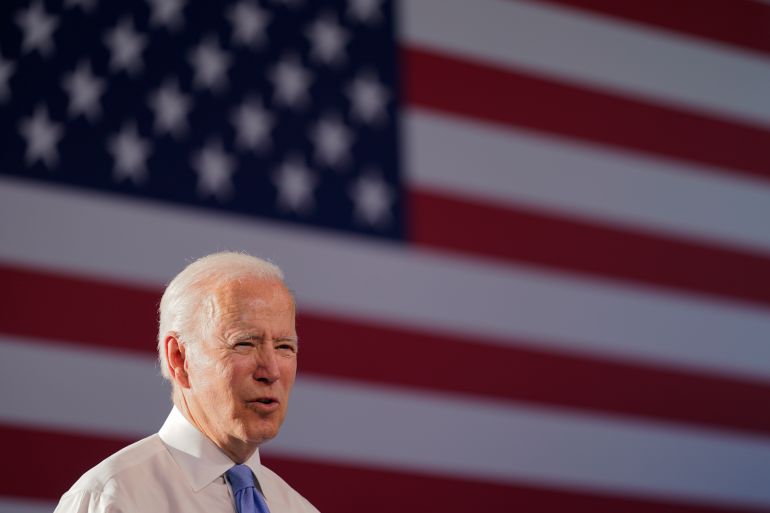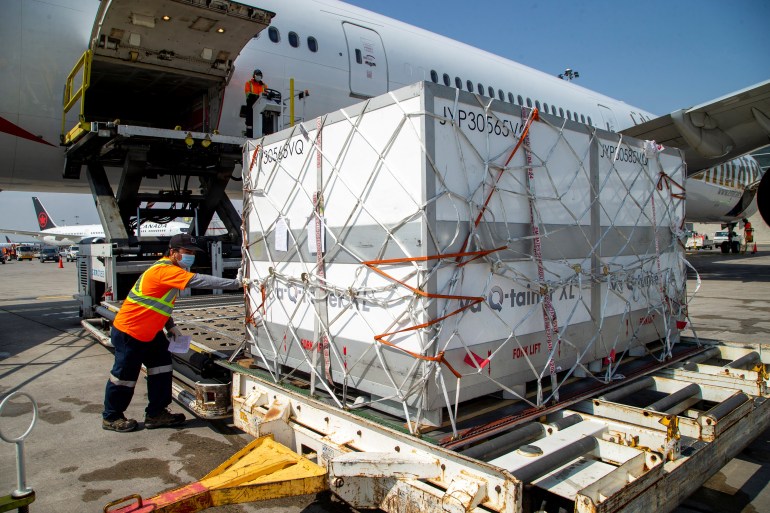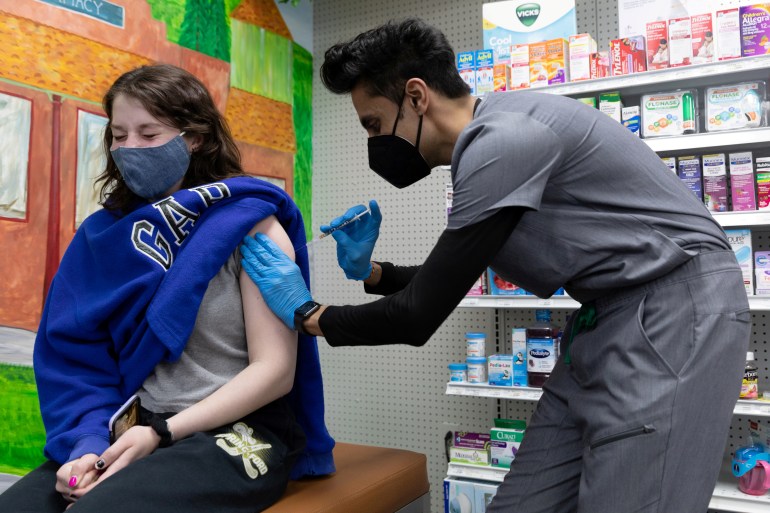White House’s global COVID jab distribution plan hits a snag
The remaining 55 million COVID vaccine doses will be distributed, but not in time to meet President Biden’s deadline.

The Biden administration on Monday revealed allocation plans for 55 million coronavirus vaccination doses, amid what officials say are logistical challenges that have delayed a commitment to share 80 million with other countries by the end of June.
In a fact sheet released Monday, the White House said the majority of the 55 million shots will be shared through the COVAX global sharing mechanism. Some 14 million doses will go to countries in Latin America and the Caribbean, including Brazil, Argentina and Colombia, while 16 million will go to countries in Asia, including India. About 10 million doses will go to Africa, with countries selected in coordination with the African Union.
Keep reading
list of 3 itemsWhat will public school look like for US students this fall?
Canada: Fully vaccinated citizens face no quarantine after July 5
The remaining doses, some 25 percent, will be shared directly with countries in Latin America, Asia, Africa, the Middle East and in Europe.

“Sharing millions of U.S. vaccines with other countries signals a major commitment by the U.S. Government,” the White House said in the fact sheet.
“Just like we have in our domestic response, we will move as expeditiously as possible, while abiding by U.S. and host country regulatory and legal requirements, to facilitate the safe and secure transport of vaccines across international borders.”
But President Joe Biden is expected to fall short of his commitment to ship 80 million COVID-19 vaccine doses abroad by the end of June.
White House press secretary Jen Psaki said the US-produced doses are ready, and the delays were due to regulatory and logistical hurdles.
“What we’ve found to be the biggest challenge is not actually the supply — we have plenty of doses to share with the world – but this is a Herculean logistical challenge,” Psaki said during a regular news conference on Monday.

So far, fewer than 10 million doses have been shipped from the US to the other countries, including 2.5 million doses delivered to Taiwan over the weekend, and about 1 million doses delivered to Mexico, Canada and South Korea earlier this month.
Psaki said shipments will go out as soon as countries are ready to receive the doses and the administration sorts out logistical complexities, including vaccination supplies like syringes and alcohol prep pads, cold storage for the doses, customs procedures and even language barriers.
Psaki said she was not aware of how many doses would be shipped by the end of the month.
The US has been shipping “excess” doses – shots that are not needed in the US – amid plummeting demand for vaccinations in recent weeks. More than 177 million Americans have received at least one shot.
Earlier this month, Biden announced that on top of the 80 million doses his administration would share globally, the US was purchasing 500 million doses from Pfizer to donate around the world over the coming year, with the first deliveries expected in August.

The White House earlier this month also unveiled plans for the first 25 million doses for export from existing federal stockpiles of Pfizer, Moderna and Johnson & Johnson vaccines and some have already begun shipping.
Biden initially committed to providing other nations with all 60 million US-produced doses of the AstraZeneca vaccine, which has yet to be authorised for use in the US but is widely approved around the world. The AstraZeneca doses have been held up for export by a weeks-long safety review by the Food and Drug Administration.